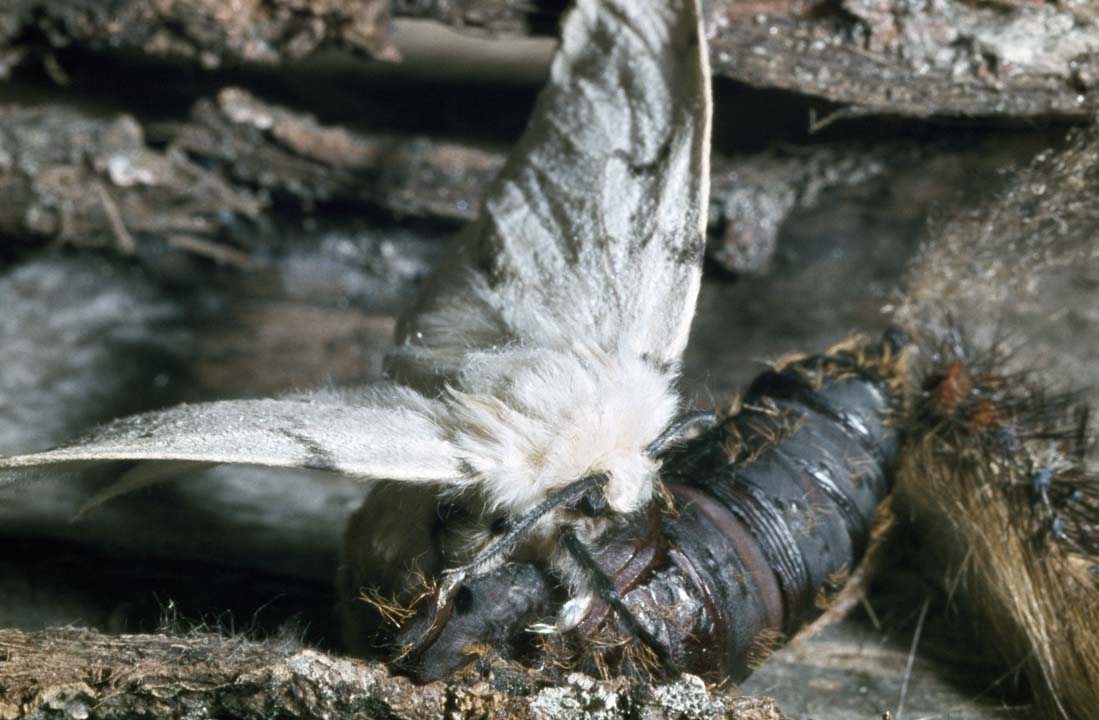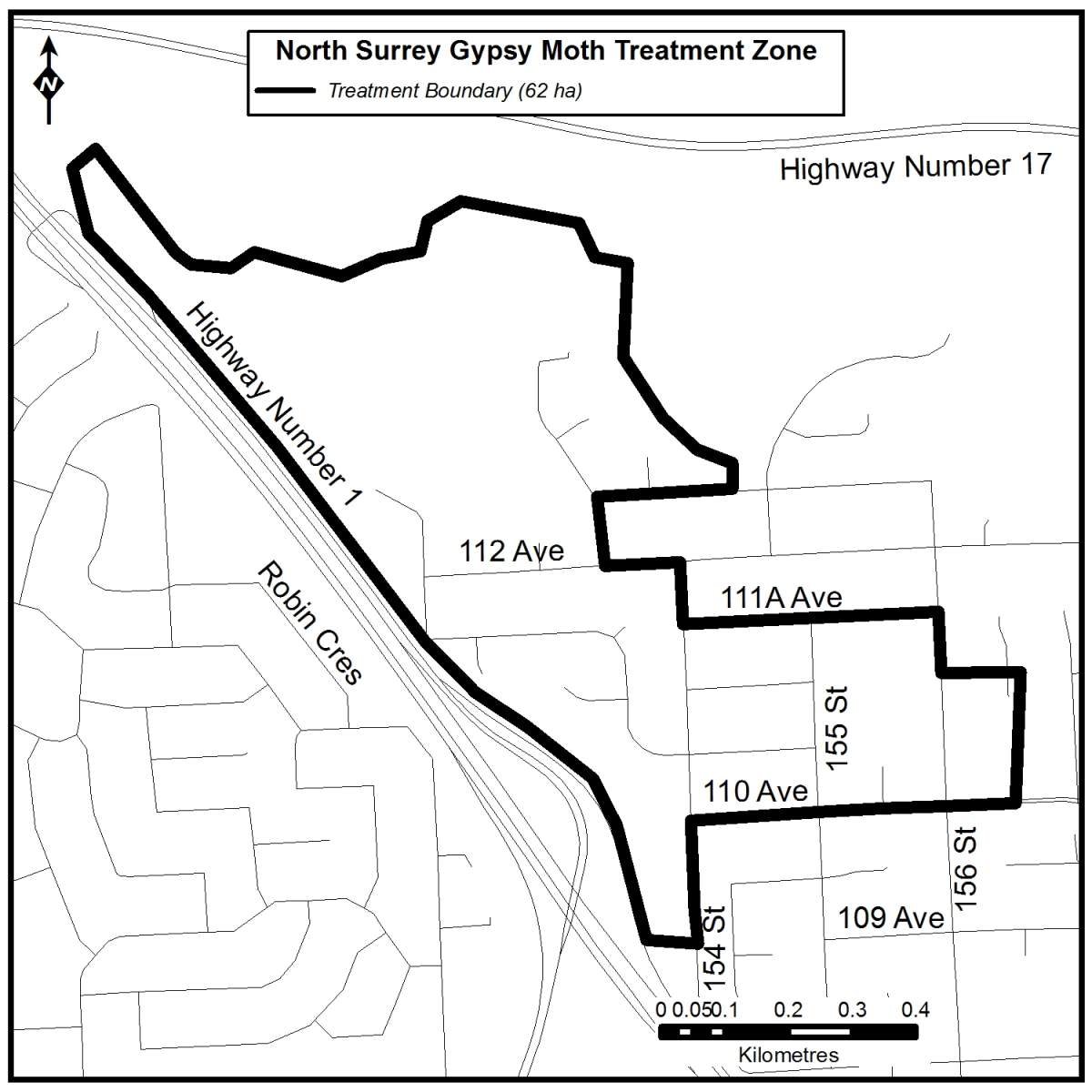An environmentalist is raising concerns about provincial plans to spray pesticides in four B.C. communities to kill gypsy moths in the coming weeks.

“I think people should be able to say, ‘No spraying on my property,'” Roslyn Cassells told Global News.
The Port Mann/Guildford area of Surrey, Agassiz and Campbell River will all be treated with a ground spray, while Courtenay will be treated with an aerial spray.
The province says a 2017 inspection by the Canadian Food Inspection Agency found the insects were establishing growing populations in the four areas.
The European gypsy moth is an invasive species whose caterpillars can do significant damage to foliage, and are of particular concern to fruit and nut farmers.
Spraying is slated to take place in north Surrey next Tuesday, depending on the weather.
But Cassells says residents should be able to opt out.

Get weekly health news
She claims the substance being used to kill the moths, called Btk, disrupts the ecosystem and can cause animal and human health issues.
“People with depressed immune systems find that Btk can be a trigger for pathogens that would otherwise regularly be present in the body, but become overwhelmingly toxic with the combination of Btk,” she said.
READ MORE: Residents raise concerns about gypsy moth spraying in Surrey and Delta
“There’s an alarming array of symptoms: vomiting, stomach cramps, diarrhea, coughing, congested nose, headaches, sore eyes and throat and asthma.”
The province disputes those claims.
Btk is not a chemical, but is actually a bacteria called Bacillus thuringiensis (Bt) that occurs naturally in the environment, and is known to cause illness in many insect larvae, according to the province.
The “K” variety, (kurstaki), is particularity effective at killing caterpillars.
The province says Btk has been approved for use in Canada for 30 years, is used by organic food growers, and has no known toxic effects on humans, mammals, birds or fish.
In an email, the City of Surrey said it opted out of aerial spraying this year because of proximity to the Port Mann Bridge.














Comments
Want to discuss? Please read our Commenting Policy first.